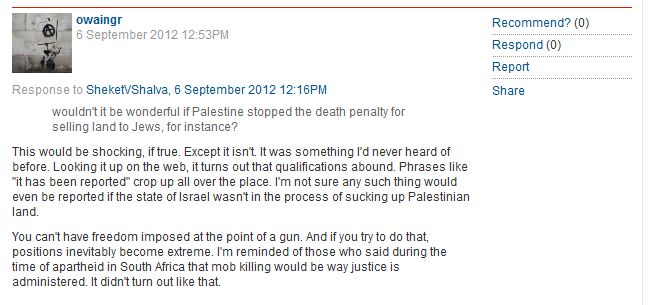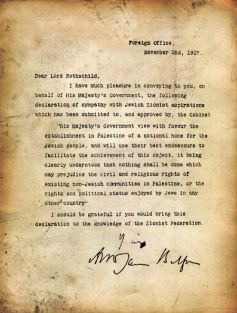The following was written by K. Gena, a student at Imperial College London who attended Norman Finkelstein’s talk at the University on November 26th as a part of the Islamic Society’s Justice Week. The talk was a part of Finkelstein’s UK lecture tour.
If you’ve ever taken a pessimist on a hard journey you will know that the journey becomes hell. The person sees only the bad side of the coin, conveys suspiciousness and uses superstition to predict the failure of the journey. Well, a pessimist eventually can be left home alone, but what can be done with a controversial radical, who also happens to be a charismatic speaker?
One of these individuals is Norman Finkelstein, an invited speaker by the Islamic Society to Justice Week. He was introduced as a professor, although his academic rank would be equivalent to a lecturer (he was denied tenure in the US), and he has a track record of controversy among academic colleagues.
Being at his lecture reminded me of the movies by Michael Moore which supposedly reveal hidden conspiracies behind any action or event. But if the movies by Moore are usually taken with a pinch of salt, I was surprised to see a lack of critical reflection on behalf of the people in the audience who failed to challenge any of Finkelstein’s views.
Worse than that, the inaccuracies of some of the facts presented went mostly unnoticed because of the crowd’s almost naive willingness to believe.
Most of the focus of the talk was on the operation “Cast Lead”, a 3-week armed conflict in the Gaza strip during winter 2008-2009. Israel started the operation after an escalation of rockets fired into its territory by Hamas militants.
Hamas is the largest Palestinian militant Islamist organisation widely recognised as a terrorist organisation, which took over control of Gaza in 2006.
From the beginning Finkelstein brilliantly downplayed the necessity of the Israeli action, and made the situation into an almost one-sided-conflict portraying Israel as an unprovoked aggressor. His rhetoric reminded me of that of a politician who highlights those aspects which favour his statements, while ignoring others that don’t support his case.
For example, he “forgot” to mention the reasons why the Israeli government decided to go into the complicated operation in the first place. Restoration of security for Israel was absolutely essential after more than 3000 rockets were fired into Israel during 2008 alone.
He forgot to mention the reasons for the blockade, implemented to restrict the influence and power of Hamas and to stop them from smuggling weapons, consequently used to attack Israel. He did, however, mention the humanitarian crisis and purported starvation in Gaza, while forgetting to mention that Hamas had no shortage of the rockets or ammunition before and during the fighting.
As is commonplace in talks regarding this topic, Finkelstein used emotional metaphors to engage the audience rather than offer rational arguments to defend his cause.
However, what made me most anxious was the fact that he praised Hassan Nasrallah, the leader of the Lebanese paramilitary group and political party, Hezbollah. This group calls for the imminent destruction of Israel and is regarded by the international community as a terrorist organisation. To much amusement from the crowd, he glorified the leadership of Nasrallah while jokingly suggesting the illiteracy of King Hussein of Jordan and of Hosni Mubarak (President of Egypt) with whom Israel has peace agreements. This, for an Israeli in the midst of an apparently tolerant UK university was very disturbing and simply unacceptable.
Sadly, Finkelstein also abused his privilege of lecturing to Imperial students by using a rhetoric which did not fall short of calling for resistance. By using phrases like “Israel understands only one language – language of force”, “Israel wanted a bloody conflict …”, “before they (Israel) go for the kill …”, “Israel would attack in the next 12-18 months …” he actually looked to escalate hatred.
Finally, by saying “we have to get prepared for their exercise in insanity”, “we have to act”, “things will not change”, he seemed to encourage a call for action! This is hardly something that can provide a constructive force or harmony which can help bolster any peace process in the Middle East.
The Middle East is at a very important cross-road. The journey to peace is hard and at times can be unpleasant. It is clear that both sides, Israel and the Palestinians, have made and will continue to make mistakes. In this context, a radical speaker can only hinder the journey, and should be left at home. We all need leaders and speakers who can see beyond specific events of a conflict, who can inspire an audience with peace initiatives and proposals, and pave the way for a time when harmony will be achieved. With God’s Help = Beezrat Ha Shem = Inshallah!



